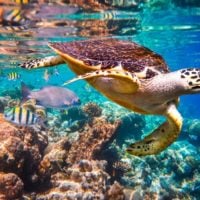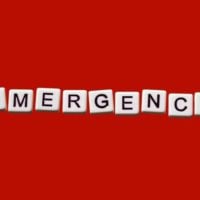Deadline: 06-Oct-21
The European Commission (EC) is inviting proposals for One Health approach for Food Nutrition Security and Sustainable Agriculture (FNSSA).
The “One Health” approach to plant and animal health is based on a systemic perspective linking the health of ecosystems, animals and humans. It requires interventions at different level (local, territorial, value chain) and coherent public policies.
‘One Health’ can be applied to establish a transformative approach to increasing sustainable practices in agriculture and improving the overall health and well-being of humans, animals, and natural ecosystems.
There is a need to fill knowledge gap regarding interactions with different components and especially between human and animal and plant health and strengthen monitoring and evaluation systems to prevent the emergence and spread of pest and diseases with nature-based solutions.
Proposals should build on existing and new knowledge, data, models (including in situ calibration measurement) and available tools to:
- Identify local farm animals and crops in the different agro-ecological zones in Africa to maintain/increase productivity, resilience and nutritional quality taking into account the interactions between plants, animals, diseases, pests, zoonosis and ecosystems under conditions of limited external inputs and increased abiotic and biotic stresses;
- Develop innovative means including innovative methodologies for risk assessments and practices to tackle current and emerging plant pests and diseases, pests and zoonosis (including transboundary infectious livestock diseases) taking into account the interactions between plants, livestock health and the natural ecosystems;
- Develop sustainable and systemic integrated approaches to plant and animal health from farm to international scales in line with a greener agriculture by optimising resource efficiency, minimising production losses and avoiding geographical spread of diseases/pathogens (i.e. control of locusts or other migratory pests, development of vaccines) including animal breeding and being responsible/respectful of natural ecosystem integrity, goods and services;
- Establish a multidisciplinary team that works together to achieve these outcomes and bring together experts from academic, government, public, and private institutions to achieve meaningful change in public awareness, policies, and practices that support implementation of sustainable agricultural practices.
Funding Information
The check will normally be done for the coordinator if the requested grant amount is equal to or greater than EUR 500 000, except for:
- public bodies (entities established as a public body under national law, including local, regional or national authorities) or international organisations; and
- cases where the individual requested grant amount is not more than EUR 60 000 (lowvalue grant).
Expected Outcomes
Projects results are expected to contribute to all of following expected outcomes:
- EU – Africa jointly tackle climate change and environment-related challenges and meet the objectives of the Paris Agreement on climate change, and contribute to the Sustainable Development Goals;
- develop nature-based solutions to plant nutrition, plant health and animal health addressing human health, with innovative methods and technologies that optimize, and limit when necessary, the use of external inputs and helps farmers in the implementation of regulated deficit strategies;
- strengthened transdisciplinary research and integrated scientific support for relevant EU policies and priorities (the EU strategy for Africa, European Green Deal objectives, etc.);
- In line with the EU priorities, proposals should take into consideration the objectives of the European One Health Plan against Antimicrobial Resistance (AMR) [1]that aim at making the EU a best practice region, boosting research, development and innovation and shaping the global agenda.
Eligibility Criteria
To be eligible for funding, applicants must be established in one of the eligible countries, i.e.:
- the Member States of the European Union, including their outermost regions;
- the Overseas Countries and Territories (OCTs) linked to the Member States;
- eligible non-EU countries:
- countries associated to Horizon Europe;
- low- and middle-income countries.
For more information, visit https://bit.ly/3heW3q8









































